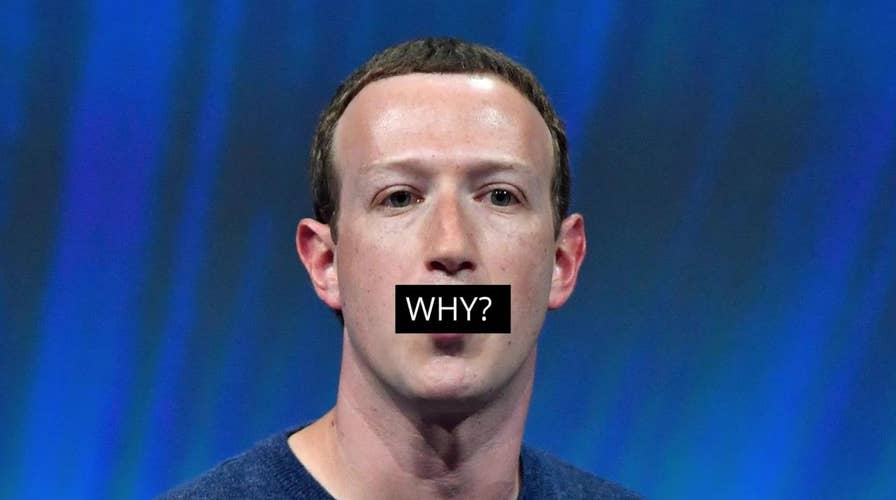Facebook gave certain companies like Lyft, Netflix and Airbnb preferential treatment by allowing them to access users' data, according to a massive trove of secret documents and emails released by a British parliamentary committee on Wednesday.
In the summary of findings, Damian Collins, chairman of the British Digital, Culture, Media and Sport Committee that investigated Facebook over the Cambridge Analytica data scandal earlier this year, promptly calls out the social network's data privacy practices.
"Facebook have clearly entered into whitelisting agreements with certain companies, which meant that after the platform changes in 2014/15 they maintained full access to friends data. It is not clear that there was any user consent for this, nor how Facebook decided which companies should be whitelisted or not," the summary states.
STRUGGLING APPLE IS SLASHING THE PRICE OF THE NEW IPHONE XR
The 200-plus pages of documents, which are under seal in the U.S. as part of an ongoing lawsuit in California between Facebook and the developer Six4Three, were obtained late last month by Collins, who used the legislative body's sergeant-at-arms to seize them from a Six4Three executive.
In a response posted on its blog, Facebook said that whitelists are a common part of testing new features with a limited group of partners before a broader rollout.
"For most developers, we also limited their ability to request a list of who someone’s friends were, unless those friends were also using the developer’s app. In some situations, when necessary, we allowed developers to access a list of the users’ friends," the company said. "This was not friends’ private information but a list of your friends (name and profile pic)."
The summary of findings' second takeaway is that Facebook consistently wanted to link "access to friends data to the financial value of the developers' relationship with [the company]."
The company led by CEO Mark Zuckerberg also pushed back on this point, characterizing the emails as "cherrypicked" and adding: "Instead of requiring developers to buy advertising – we ultimately settled on a model where developers did not need to purchase advertising to access APIs and we continued to provide the developer platform for free."
Facebook's thoughts about its competitors and potential rivals can also be seen in the internal emails, an approach which Collins labels "aggressive."
That approach allegedly included using Onavo, an Israeli analytics company Facebook bought in 2013, to conduct global surveys of mobile app usage to determine whether or not Facebook should be threatened by rivals or consider acquiring them — as it did in the case of Instagram and WhatsApp.
A January 2013 email in the documents from Justin Osofsky, currently Facebook's vice president for global operations and media partnerships, notes that Twitter had just launched Vine, its now-discontinued short-video service, which was allowing their users to find friends via Facebook.
SPACE STATION ROBOT GOES ROGUE

Mark Zuckerberg, chief executive officer and founder of Facebook Inc. attends the Viva Tech start-up and technology gathering at Parc des Expositions Porte de Versailles on May 24, 2018 in Paris. (Getty Images)
"Unless anyone raises objections, we will shut down their friends API access today. We've prepared reactive PR, and I will let Jana know our decision."
Zuckerberg's response, according to the email, was to "go for it."
Facebook has denied that it offered preferential access to data for major advertisers, something that Six4Three alleges in its lawsuit, and a spokesperson told Fox News:
“As we’ve said many times, Six4Three — creators of the Pikinis app — cherrypicked these documents from years ago as part of a lawsuit to force Facebook to share information on friends of the app’s users. The set of documents, by design, tells only one side of the story and omits important context.”
Fox News has reached out to Airbnb, Lyft and Netflix with requests for comment.
"We don’t feel we have had straight answers from Facebook on these important issues, which is why we are releasing the documents," Collins said on Twitter.
Collins added: "We need a more public debate about the rights of social media users and the smaller businesses who are required to work with the tech giants. I hope that our committee investigation can stand up for them."
The Cambridge Analytica scandal is just one of many issues Facebook has faced this year. In the U.S., the social network is facing inquiries from the Justice Department, the FBI and the Securities and Exchange Commission.
The Menlo Park, Calif.-based company has also been hit by slowing user growth, calls for a leadership shakeup, the departure of top executives such as Instagram's co-founders and scrutiny over its use of opposition research against rivals.

